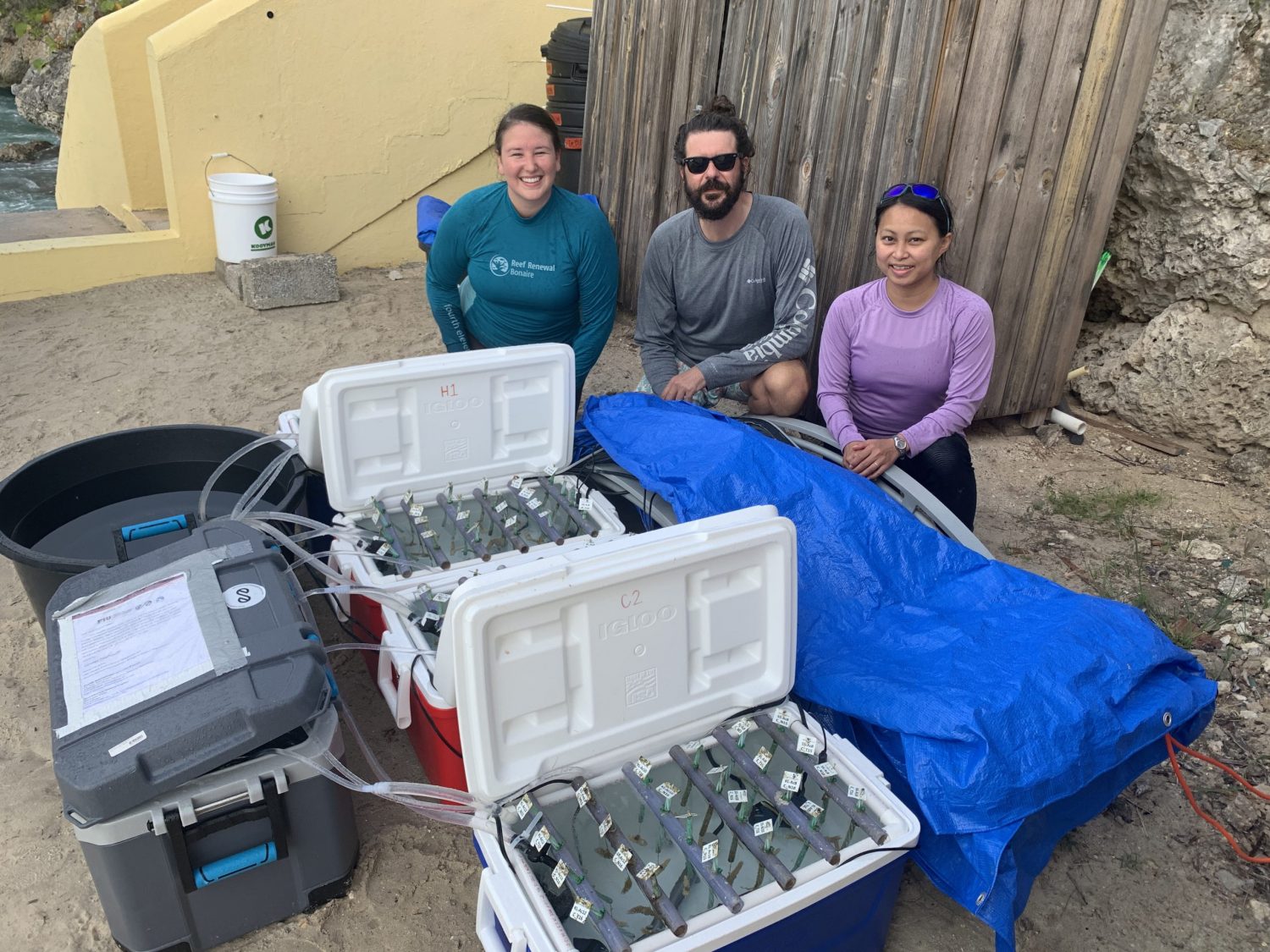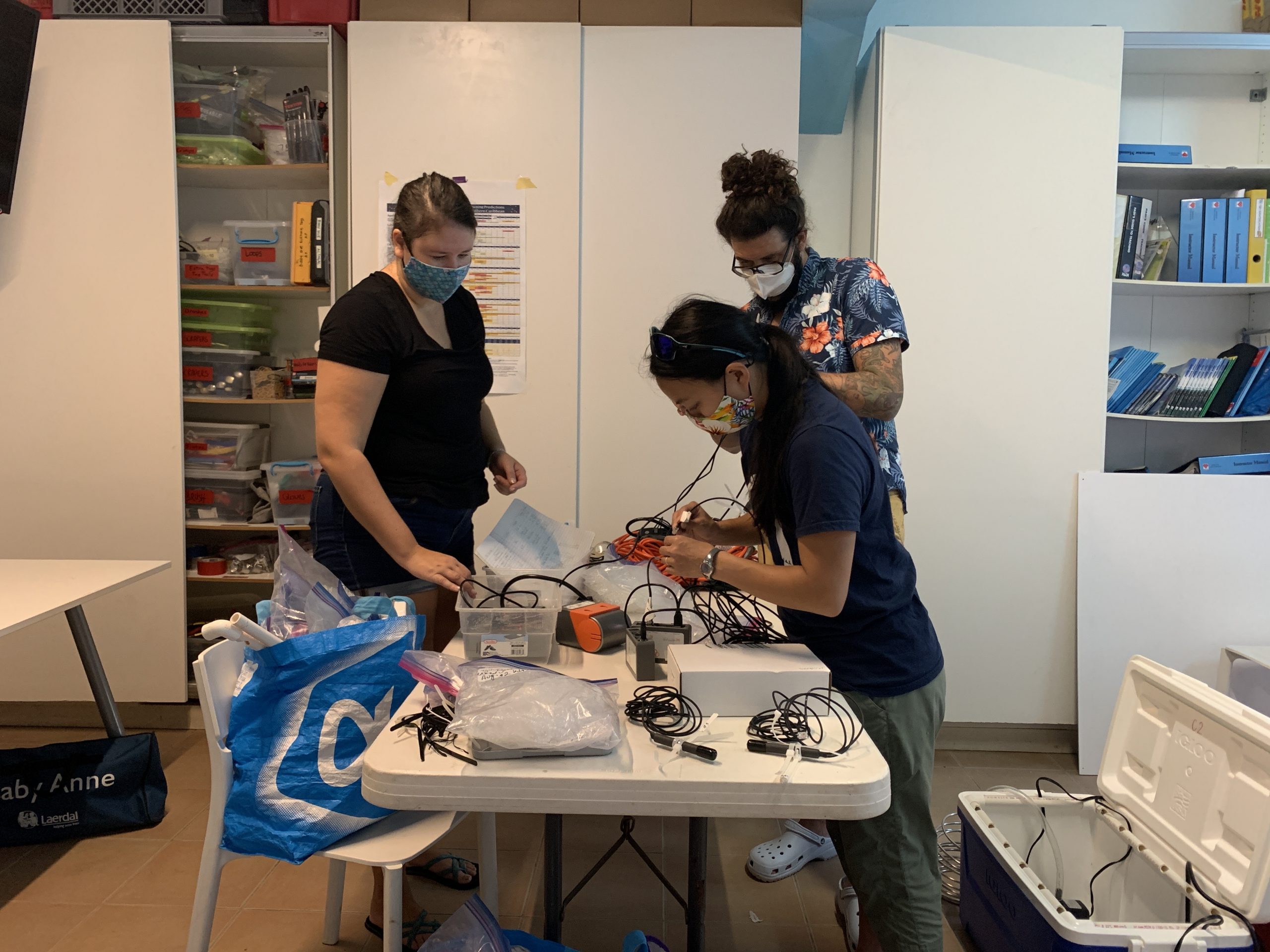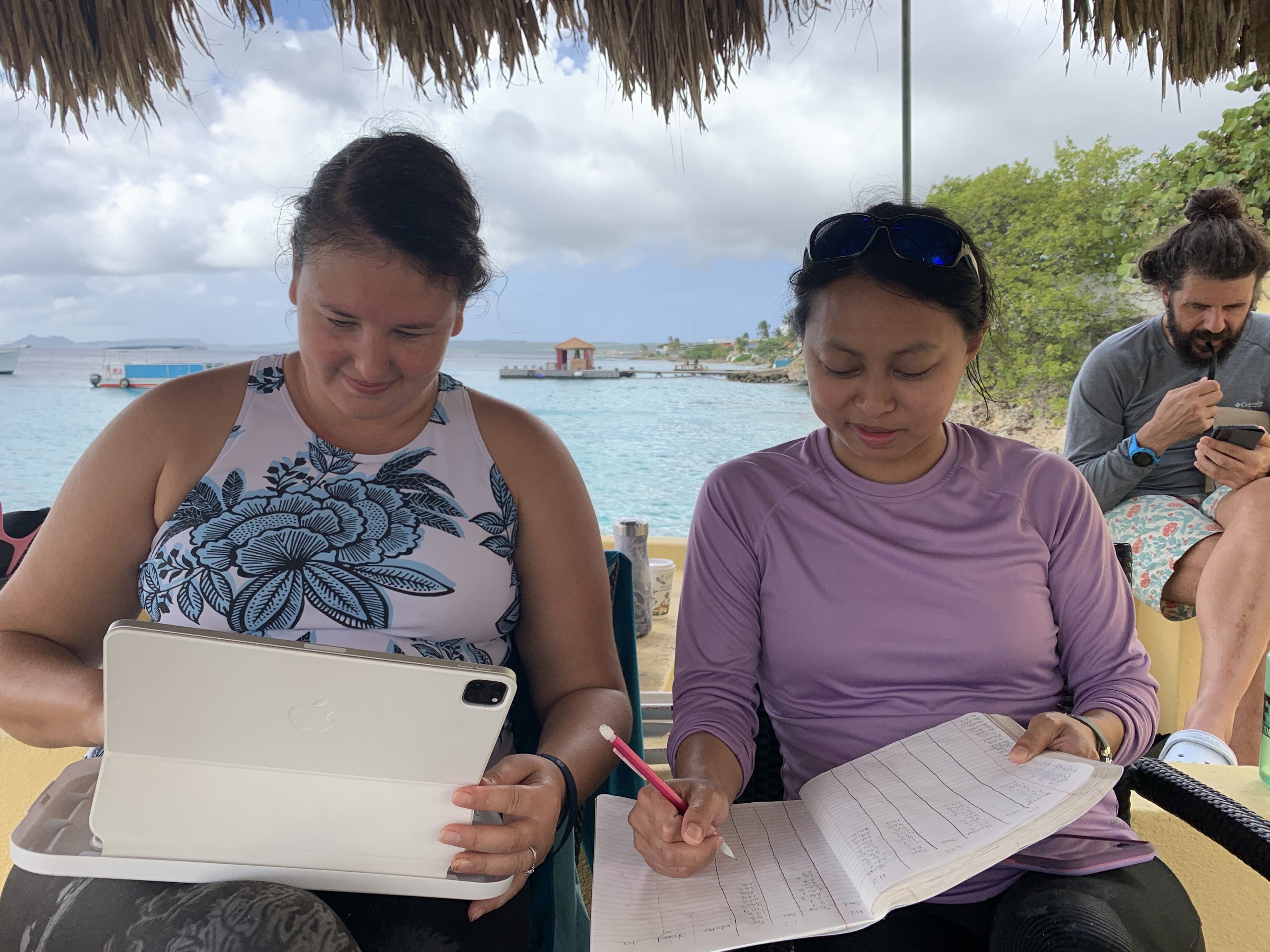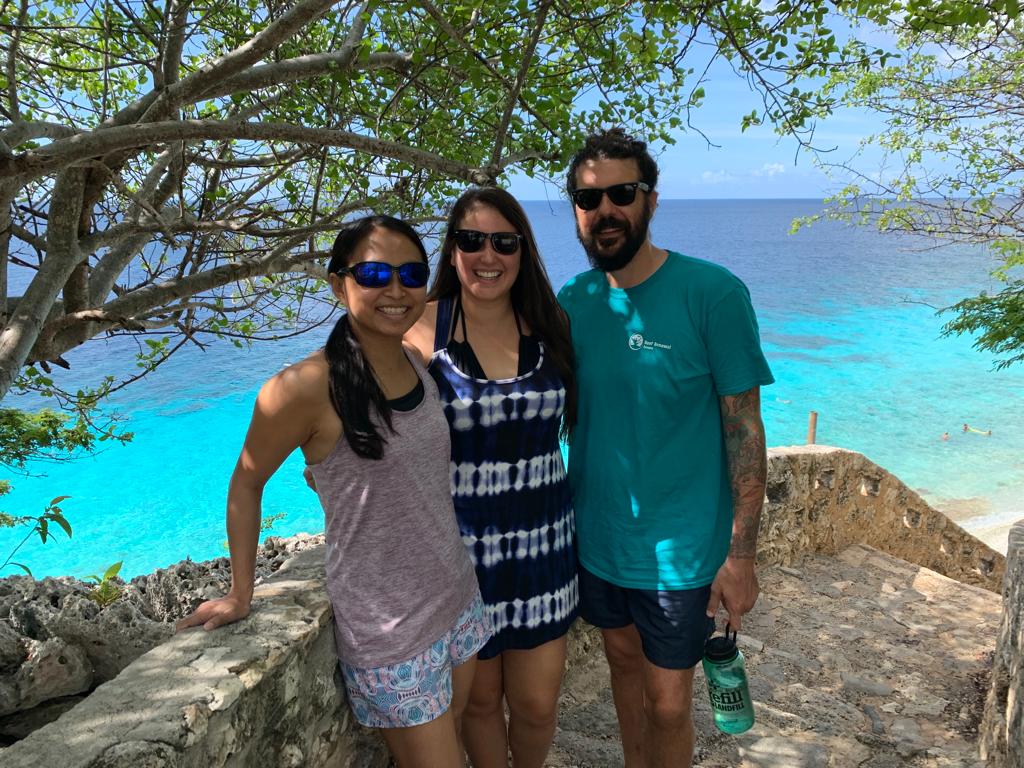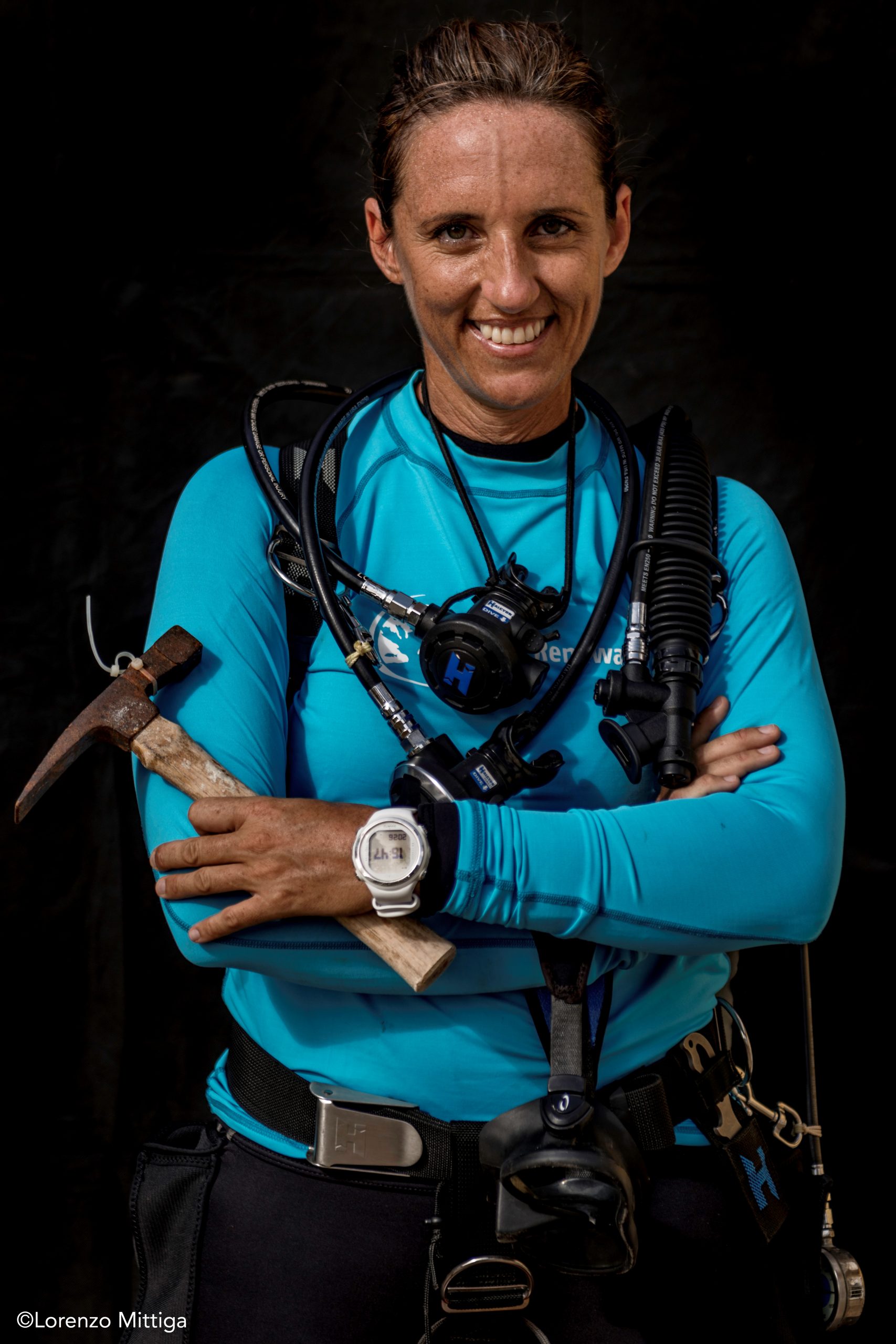After keeping a close eye on them for the first few weeks, this was an exciting monitoring timepoint to see if differences between native and transplanted corals persisted for multiple months. Differences between the performance (survival, growth, etc) and stress tolerance of these corals following the reciprocal transplant would be indicative of a lasting influence of their previous environmental experiences (i.e., environmental memory). Environmental memory, especially of different coral nursery site conditions, has the potential to help improve coral restoration success and prepare corals to better tolerate future stress exposures after outplanting. The team was excited to see that corals of the same genotype (i.e., genetic clones) that originated from different sites still looked visibly different on the coral nursery trees and during the thermal stress experiment.
A highlight of this trip was an added collaboration with the Bonaire STINAPA Junior Rangers program. Ph.D. Candidate Serena Hackerott and post-doctoral researcher Dr. Juliet Wong gave a virtual presentation on threats to coral reef ecosystems and the application of environmental epigenetic research to marine conservation. While COVID restrictions unfortunately prevented an in-person activity with the Junior Rangers, the team was glad for the opportunity to share updates from this ongoing research project with local students. An in-person research experience for the Junior Rangers remains a goal for future project expeditions if conditions allow.
Once back in the lab, Serena and her team of undergraduate research volunteers will continue to process the samples to have a better idea of the physiological differences between native and transplant corals that may account for differences in growth or stress tolerance. Given the promising results thus far, the team plans to return to Bonaire in the spring to continue monitoring the persistence of environmental memory over time.
This work has been made possible by support from Reef Renewal Foundation Bonaire, FIU CREST-CAChE, The Lerner-Gray Fund for Marine Research, and the Iberostar Wave of Change Rebuilding Coral Reefs Scholarship.



